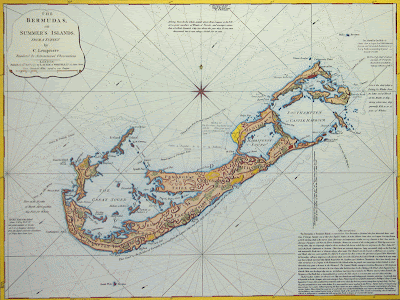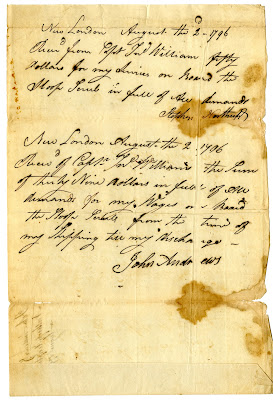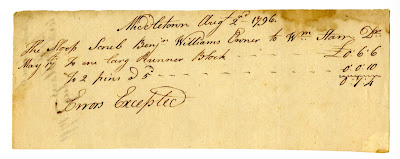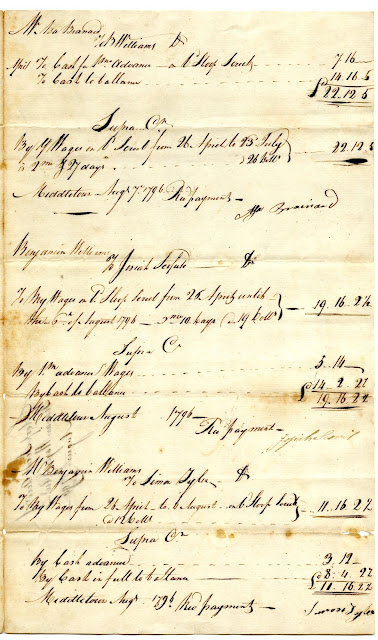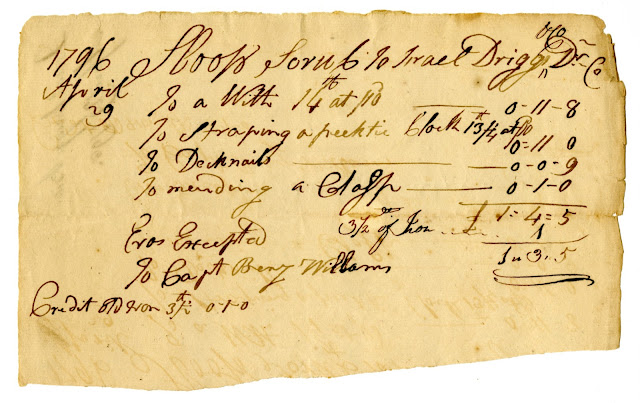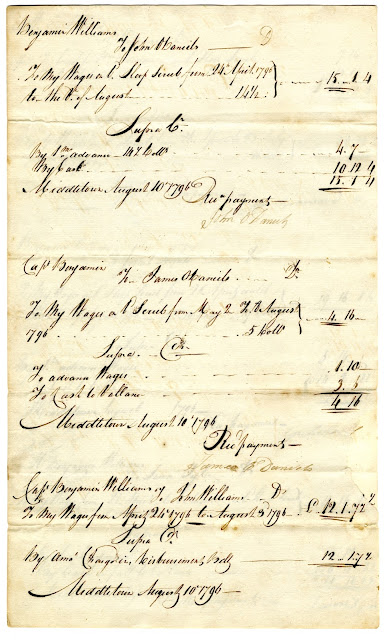"We recognize with pride, borne upon our annals, the name of Otis. The enthusiastic patriot, the brilliant orator who was among the first to warn his countrymen of their danger in the stormy periods preceding the Revolution, was a descendant of the associates of Rev. Peter Hobart in founding this town. Is it not possible that something of that ardent love of freedom, and strong aversion to despotic power, which have distinguished the descendants, may have been derived from an intelligent and independent ancestry." Page 281-Hon. Solomon Lincoln, Centennial Discourse at Hingham
The New England historical and genealogical register – Henry Fritz-Gilbert Waters, New England Historic Genealogical Society
Another distinguished descendant of the Otis name is Jonathan Otis. He was born April 30, 1723 in Sandwich, Barnstable County, Massachusetts to his parents, Nathaniel Otis and Abigail Russell. Jonathan married Catharine Coggeshall October 16, 1745 in her hometown of Newport, Rhode Island at the Second Congregational Church of Newport.
His mother, Abigail (Russell) Otis
In order to appreciate and even understand Jonathan Otis, it is important to study the character of his parents, particularly his mother, Abigail Russell Otis who was "a very remarkable woman". Found in the publication A history of three of the judges of King Charles (Major-General Whalley, Major-General Goffe, and Colonel Dixwell: who, at the restoration, 1660, fled to America; and were secreted and concealed in Massachusetts and Connecticut, for nearly thirty years) written by e learn of Abigail,"About 1759, or 1760, Mrs. Otis, of Barnstable, an aged widow lady, removed from Barnstable, and came to live with her son, Major Jonathan Otis of Newport, and became for many years a communicant in my church there. This brought me into an intimate acquaintance with her. She was a Russell, a grand-daughter of the reverend John Russell, of Hadley, daughter of the reverend Jonathan Russell, of Barnstable, and sister of the reverend Jonathan Russell, successor of his father in the pastoral charge of the church at Barnstable, who died 1758. She was every way a woman of merit and excellence. Of exceeding good natural abilities, very inquisitive, possessed a natural decency, dignity and respectability, and was a person of considerable reading, and extensive observation. She had all along in line been much conversant among ministers, gentlemen of the Court, and persons of the first respectability. She was ever learning; and imbibing something prositable and improving and took singular delight in the conversation of instructive characters. She was perfectly versed in the Russell history of the Judges, for whose memory she had the family generation. So much I think necessary to observe of her personal character. Among other conversations, she often brought up the story of the Judges. She considered it an honor to have descended from an ancestor who had concealed and protected them. (Mr. Stiles is referring to Abigail's paternal grandfather, Reverand John Russell {1629-1692}). She often told me of a trunk of Whalley's and Goffe's manuscripts which had come down to her brother, the second Mr. Russell, of Barnstable, and were preserved there in his library to his death. She said he had spent much time in reading them, and spake much of what she found contained in them. What was given to the Mather library, was but a very small part of the collection of the Judges' manuscripts in this trunk, some of which, though dispersed, may possibly yet be found, and afford light and information."
Dr. Ezra Stiles
A word about Ezra Stiles (1727 –1795) who was an American academic and educator, a Congregationalist minister, theologian and author and was president of Yale College (1778–1795). He had many interests and lived a very useful life, dedicated to study and learning. He was a very good friend to the Otis family and Jonathan Otis in particular who is mentioned many times in Dr. Stiles meticulously kept personal diary, which shall be cited hereafter. From these diary entries, we catch a glimpse into Jonathan's activities and can see he was involved in the church and was a religious man. From Dr. Stiles diary, "The literary diary of Ezra Stiles, edited under the authority of the corporation of Yale university" we read about Jonathan from 1769-1775,
MAY 23-JUNE 7, 1769
15. Sat out on a Journey into Connecticutt accompanied with Major Jonathan Otis, of Newport, a Messenger of my Church. Son of Nathaniel, of Sandwich, Mass ; born 1723. Itinerary are in part as follows:
June 15. Dined at Bristol; passed Provid. and 11 m. beyond; lodged at Pierce in Smithfield.
16. Dined Grosvenor's, Pomfret. Visited Mr. Ripley and lodged in Kennedy [/. e., Canada Parish, now Hampton]. At Pomfret parted with Major Otis who went for Mansfield.
16. Secretary Ward having signed & affixed the colony Seal to the Charter of my Congregation, three Gentlemen of the Congregation viz Mr Rob Stevens, Major Otis & D' Bartlett waited upon Gov.Wanton with it this Morning, who immediately signed it, & made delivery of it according to Act of Assembly.
MAY 16-24, 1772
Dined with the Ministers at Major Otis's : had much conversation on Faith &c. and the Pecularities of the new Divinity. In the Evening Dr. Bellamy preached a Lecture at Mr. Hopkins' Meeting on i Thess. v, 17, pray without ceasing. He asserted that it was the Duty of both regenerate and inregeierate to pray in The Aft. & Evening I spent in Company with Rev. Mr. Stevens.
1772, - the numbers appended indicating visits paid during the year :
Major Otis, 19
JANUARY 7-12, 1773
Company with Mr. Stevens, Major Otis and Dr. Jabez Bowen of Providence. The Judge told us that his Wife had been last year cured of a Cancer in her Neck of 30 years stand by a young man Mr Pope of Boston His remedy is a secret, but he explained the operation of it to Mr. Oliver in a philosophical Manner, though Mr. Pope is not a man of Letters nor does he make pretension to any other part of Medicine or Surgery
SEPTEMBER 27-OCTOBER 14, 1773
12. Last Saturday Major Otis and Mr. Antony returned from a Journey of a Fortnight only. They travelled from hence to Hartford in Connecticutt - thence to Great Barrington, Stockbridge and Hosac - thence across the green Woods thro' Claremont to Deerfield and Northfield and so up Connecticutt River to Dartmouth College in Hanover. Expences Ten Dollars apiece. All the Wilderness is alive with Families removing back from the Sea Coast settlements. He tells me that the Wentworth or Hampshire Grants on W. Side of Connect. River are confirmed by the King ; and so also Col. Lydius Patent is confirmed by the King. Dr Wheelock sent me his Narrative printed this year 1773 and also a MS Conference with a Metaguisawauk Indian from bej-ond Lake Superior.
The following is Dr. Stiles' s Visiting Catalogue of his Congregation for 1773, about 170 places, with the number of visits appended to each name.
Major Otis, 20
FEBRUARY 15-MARCH 27, 1774
27. Lordsday A.M. I preached on Eph. ii, on Luke i- 36-39, upon the Death of that vereminent & aged saint Mrs. Abigail Otis formerly of Barnstable afterwards of Newport who died at Mansfield in Connecticutt. {This is Jonathan's mother} Sister of the Rev. Jonathan Russell (Yale 170S), and wife of Nathaniel Otis, of Sandwich, Mass., who died in 1739. She lived with her youngest son. Major Jonathan Otis, in Newport ; and with her daughter Martha, wife of Edmund Freeman (Harvard 1733), in Mansfield.
Dr. Stiles' s Visiting Catalogue for his Congregation during the year 1774 is as follows, - the numbers appended to the names showing the visits paid :
Major Otis, 14
MAY 30-31, 1775
31. This day the Remains of my dear Wife were committed to the silent Grave, there to rest till the Morning of the Resurrection of the just. Agreeable to her Desire neither I nor my family wore any Mourning - -tho' my kind people cloathed my whole family, & were at the whole Expence of the funeral. There was a great concourse of the people. I desired Mr Hopkins to make a prayer at my house before the Corps were carried out. Mr Burt & Mr Hopkins walked as mourners, as did the Chh & Congregation in general. At my Wifes Desire I chose the 6 Bearers, 3 of the Chh viz Mr Stevens, Major Otis & Dr Bartlet, 3 of the Congregation viz Mr W.Vernon, J. Pitman Esqr & Mr. Benj. Ellery. The funeral procession went from the house a little after V P.M. A very long procession of, it was said, about 160 Couples - a very silent, decent, solemn, mournful Procession - all testifying their friendship & Respect to the Memory of my dear Wife. It is a mournful day such a day of Sorrow I never knew. May the Lord support me & grant me his Grace & divine Consolations, & enable me to behave under this sore Bereavement as becomes a Christian. I desire humbly to commit myself & my Children to the protection of Gods holy Providence. In God is all my Trust & Hope.
JUNE 23-29, 1775
29. Major Otis & his Family of my Congregation are moving to settle at Middletown in Connecticutt. They sailed this day...(compiler's note, The Revolutionary war began in early 1776 with the British occupation of Newport, RI during this time, hence the need for the Patriotic Otis family to leave their home in Newport)
Jonathan Otis family
-Abigail Otis was born September 4, 1746 in Newport, Rhode Island. She married William Cornell (born Jan. 16, 1743, the son of Thomas Cornell and Anne Pease) on January 15, 1764 at the Second Congregational Church in Newport, Rhode Island. Sadly, I can not locate Abigail nor her husband's death dates, nor their burial locations. If you have any information on Abigail or her husband, I would love to know. **Curious strong possible connection: In the literary diary of Ezra Stiles, he notes visiting a person in his congregation, Mrs. Cornell in 1773 in Newport, RI on 3 separate occasions. This mention of Mrs. Cornell suggests to me that either William Cornell was not a religious man or it may be that William Cornell passed away sometime before these visits in 1773, although there is no record of his passing. Next we see an Abigail Cornell marrying Thompson Phillips on Nov 24, 1776 in Middletown, Conn. in the First Church of Middletown. Thompson Phillips is listed on the 1790 census of Middletown. Abigail Phillips passed away January 9, 1792 at the age of 43, Abigail Phillip's gravestone is next to Jonathan Otis and Catherine Otis, in the Mortimer Cemetery in Middletown, Conn. There is a difference of 3 years of Abigail Otis birth, but back in those days, they did not keep careful record like we do now. Another curious connection is that Martha Cornell who married Capt Benjamin Williams, daughter of Abigail and William Cornell, named her first son Thompson Phillips Williams. This couldn't be more than just a coincidence.Saxton, Eleanor, of Middletown, child of Knight Saxton, bound to Capt. Thompson Phillips and wife Abigail of Middletown until age 18 to learn the trade of housewifery.IND. DATE: 09 Jul. 1787MHS-001I am not related to this family, I'm just passing on this information, which comes from a book titled "Apprentices of Connecticut 1637-1900. By Kathy A. Ritter. Ancestry Publishing 1986.
-Catherine Otis was born July 4, 1748 in Newport, Rhode Island. She married Thomas Brenton on October 27, 1768 at the Second Congregational Church of Newport Rhode, Island. After only 5 years of marriage, Thomas Brenton died suddenly March 23, 1772 in Newport, Rhode Island. There is no further record of Catherine.
-Susanna Otis was born May 6, 1752 in Newport, Rhode Island. She married General Joseph Walker (son of Robert Walker II and Rebecca Lewis of Stratford, Conn) on March 16, 1783 in Middletown, Middlesex, Connecticut in the First Church of Middletown. Susanna had at least 5 children namely, William, Jonathan, Catharine, Susan and Joseph. Susanna lived a long life and died at the old age of 70 years in Stratford, Connecticut on October 20, 1822 and is buried in the Old Congregational Burying Ground in Stratford, Conn.
-Joseph Otis was born October 28, 1756. Joseph died at the age of 31 on December. 18, 1787 in Middletown, Conn and is buried next to his mother and father in the Mortimer Cemetery. No record of a marriage or issue.
-There may have been one other son, Nathaniel Otis (1755-1817).
Otis Home Newport, RI
Otis home in Newport received it's historic home nomination in 2007. The original builder of the house is believed to be John Odlin. By 1758, thirteen years had passed since his marriage to Catherine, we see ownership of the house had transferred to Jonathan Otis. Jonathan lived in the home until they were forced to move to Middletown in 1775, then by 1788, he sold the house. He did not return to live here after the war. He remained in Middletown until his passing.
 |
| Odlin-Otis house of Newport, Rhode Island |
Major Jonathan Otis, the Patriot
Jonathan was an "ardent patriot", known to be one of the Sons of Liberty and active in the military holding rank of Lieutenant in 1755 rank of Captain in 1757 and of Major in 1758. The Sons of Liberty were most notable for the Boston Tea Party in 1773. Jonathan's first cousin, James Otis, Jr, also known to be in league with the Sons of Liberty, was an early advocate of Patriotism and coined the catchphrase "taxation without representation is tyranny". During the Revolutionary war, Major Jonathan Otis was appointed Commissary by the State of Connecticut to purchase clothing and supplies for the Revolution. Just prior to the Revolutionary War, Otis moved his residence to Middletown, Connecticut, in 1775 where in spite of his age, then 61, he was active on committees for the aid of those Rhode Islanders and others made destitute by the war. Here once again, he proved himself and was appointed as a council member of the city government in 1784 under the leadership of Mayor Hon. Jabez Hamlin.Letter to Ezra Stiles from Jonathan Otis found in the literary diary of Dr. Ezra Stiles. (letter unedited)
"MIDDLETOWN January 20, 1777.I most heartily wish you Joy on the repeated Success of our Arms at the Westward; both at Trenton, Princetown & elsewhere. It seems since affairs have taken a more favorable Turn that the Jersey Militia have found their hands &are doing well; they took 240 British Troops with one hundred Waggon Load of Baggage. The prisoners are arrived in this state who I believe will find very different treatment from those who were lately sent from here to be exchanged at Newport, who past through here with near fifty slay loads of men, women, children, and Bagage, all in good health fat & well feed yet I did not see one sickly one amongst them; when those that come from New York are starved, seven hundred died in the City, fourty upon the passage to Milford, 27 since and many more which 'tis feared will not long survive their broken & decayed Natures, besides their send them in a ship infected with the small pox of which several are now sick. Such treatment has raised the Resentment of y.(the) Inhabitants of this Colony that the Assembly have taken it up & wrot General Washington and remonstrated to Gent Howe against such savage usage. Cursed be their Anger for it is cruel. There seems to be a determination in the Generals Heath & Parsons to visit New York who sat out from Peeks Kills Wednesday last (Jan. 15) about ten o'clock with about Five Thousand Men. Sixteen Companies were commissioned by the Gov. here last week going as Volunteers for two or three weeks in expectation to plunder their Magazines in the City. We hear by Letters from Gen. Parsons that a whole Brigade of Hessians have refused to do any more duty, upon which they were disarmed & sent for New York. Our Assembly have complied with the doing of the Comittee at Providence & have stated Provisions &c agreeable to their Resolves; have also put a stop to Distilling of Grain within this State, &c-One of our Officers heard an Hessian, Officer say that they had lost of their people by sickness, killed & taken prisoners Full four Thousand Men; if this be true tis no wonder they are tired of their Duty.I forgot to tell you that the British Court have made a Demand of one Silas Deane Esq. who they say is an Ambassador from their Rebellious Colonies to the Court of France and order that he be forthwith delivered up to Lord Stormont.6 o'clock. General Heath has taken fort Washington [Only invested Ft Independence] fryday (Jan. 17) without loss of a man. Saturday (Jan. 18) marched for the citey which wee expect to have in our hands tomorrow."Jonathan OTIS."
Jonathan Otis, the Silversmith and Goldsmith
Jonathan's chosen trade was to be a silversmith. He would grow to have great talent and would become well known in the industry as a "noted and celebrated Silversmith".Jonathan's Uncle Moody Russell, brother to the Major's mother Abigail, was a skilled silversmith and no doubt had a big influence on Jonathan's knowledge in the silversmith industry. Jonathan officially apprenticed under his "master" Moody Russell, abt 1745, Sandwich, Barnstable, MA. Regarding Moody Russell, we learn from the publication, American silver of the XVII & XVIII centuries, a study based on the Clearwater collection , page 50
"Moody Russell (1694-1761) of Barnstable, Mass. son of Jonathan Russell and Martha Moody Russell, daughter of Rev. Joshua Moody. Grandson of Rev. John Russell who gave shelter to the fleeing regicides, Goffe and Whalley, at his home in Hadley. Moody Russell's uncle, Eleazer Russell (1663-1691), was a silversmith of Boston, Mass. Another uncle was the silversmith, Edward Winslow, to whom Moody Russell was apprenticed. Moody's sister, Abigail, married Nathaniel Otis and their son became the celebrated silversmith, Jonathan Otis."
In the same publication, American silver of the XVII & XVIII centuries, a study based on the Clearwater collection - Alphonso Trumpbour Clearwater, Clara Louise Avery, Metropolitan Museum of Art (New York, N.Y.), page 96, we read about Jonathan,
of our arts and crafts during the latter part of the eighteenth century.
Today, many of his works are sought after and prized. At auction for instance, his salt cellar and pepper casters fetched $31, 070.
"JONATHAN OTIS Born in Sandwich, Mass., 1723; died in Middletown, Conn., 1791. Son of Nathaniel Otis and Abigail, daughter of Rev. Jonathan Russell of Barnstable and sister of Moody Russell, the silversmith. Jonathan Otis married Catherine Coggeshall in 1745. Began business in Newport and was active in the militia, a skillful silversmith. He was great-great-grandson of John Otis who emigrated from Devonshire, England, in 1635, to Hingham, Mass."Jonathan, in his Newport silversmith shop was thriving about the middle of the eighteenth century. Casters, which were used for sprinkling sugar on to muffins, were frequently made by him. They were of the style known as the vase-shaped type and reflect the influence of the classic revival which was evident in all
of our arts and crafts during the latter part of the eighteenth century.
Today, many of his works are sought after and prized. At auction for instance, his salt cellar and pepper casters fetched $31, 070.
 |
| Two handled cup, Jonathan Otis |
Silversmith mark of Jonathan Otis "OTIS"
Additional mark "J.Otis"
Jonathan Otis Census Information
1774 Colonial Census, Town of Newport, Newport County, Rhode Island
| Head of household | Males abv 16 | Males under 16 | Females abv 16 | Females under 16 | Indians | Slv | Total |
| Otis, Jonathan | 3 | 1 | 6 | - | - | 3 | 13 |
1790 Census Index, Middlesex Co., CT , Middletown , Page 428,
Head of Household
|
Over 16
|
Under 16
|
Female
|
Other
|
Slv
|
Jonathan Otis
|
1
|
0
|
1
|
0
|
1
|
Jonathan Otis passing
Jonathan Otis died at the age of 68 years on February 20, 1791 in Middletown, Middlesex, Connecticut. He is buried next to his wife, Catherine Coggeshall Otis and son Joseph Otis in the Mortimer Cemetery.My connection to Jonathan Otis:
Major Jonathan Otis married Catherine Coggeshal who had Abigail Otis
Abigail Otis married William Cornell who had Martha Cornell
Martha Cornell married Capt. Benjamin Williams who had Edwin Williams
Edwin Williams married Jane Livingston who had Lt Hugh Welch Williams
Lt Hugh Welch Williams married Annis White Gleason who had Charles Eli Williams
Charles Eli Williams married Louisa Christensen who had Charles F. Williams
Charles F. Williams married Illa L.C. Hawks who had Carroll D. Williams
Carroll D. Williams married Lois Keele who had Living Williams
Living Williams married A.C. Curtis who had...
compiled and edited by J.L. Curtis-Jones










